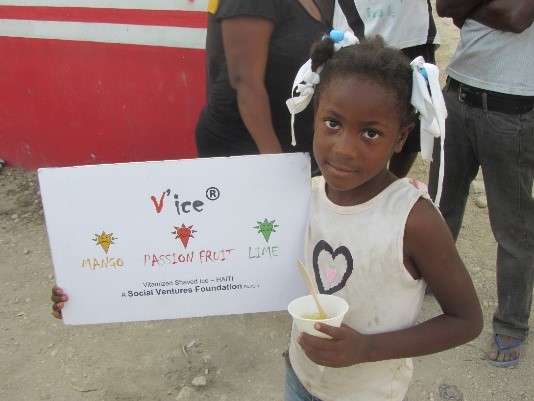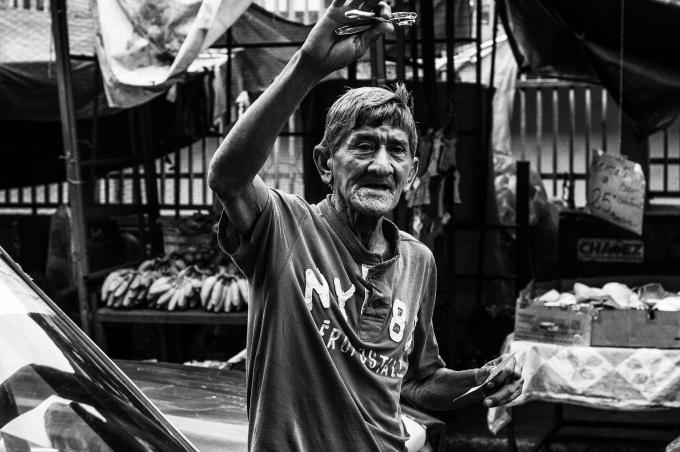Scaling best practices to sustainably lift the livelihoods of the poor
After my first meeting with Professor Stuart Hart (a member of this publication’s Editorial Committee) a long time ago, I was struck by the absence of any investment fund that was focused on the Bottom of the Pyramid (BoP). There were spotty efforts by international development funds like International Finance Corporation as well as some private equity funds, but both had limited dry powder or the resources to scale best practices that could impact hundreds of millions of the world’s poor. I felt that there needed to be a fund that could engage the vast financial resources of the global public as an alternative to their charitable donations, which tended to underwrite unsustainable approaches.
As many of you know, the number one goal of the United Nations Sustainable Development Goals (SDGs) is No Poverty—and eight other goals are clearly linked to the impact that poverty has on our world. Extreme poverty is the primary cause of war, disease, human suffering and environmental degradation.
The Social Ventures Foundation often has to make the case for why we are different from other social impact funds like ESG and the smattering of small private social impact equity funds. To do so, we pitch what is unique about us, like our desire to identify and invest in outstanding start-ups that:
- employ the poor to deliver sustainable social impact
- utilise social and micro-franchising to reach hundreds of millions of the world’s poor
- engage the global public as an alternative to charitable contributions
Nearly 90% of inclusive businesses are, in fact, start-ups, and the Social Ventures Foundation is committed to enabling their success through four objectives:
First, we identify social ventures through networks of universities and colleges, international development agencies, research labs, foundations and private investment funds.
Then, we promote the best of these social ventures by publishing them in our PovertyWatch newsletter and presenting their case studies at our annual EndPoverty Summit, at which social entrepreneurs share best practices in health, education, environment, nutrition, agriculture, housing, transportation, and energy.
Third, we facilitate investment in the most outstanding social ventures through the EndPoverty Fund, which is expected to be fully funded by the latter part of 2019. The Fund is focused primarily on scaling start-ups to reach millions of the world’s poor. We especially like business models that employ the poor to bring about positive social impact for the poor, using social and micro-franchising.
These models enable rapid scaling to reach the last mile. Social and micro-franchising enables more equitable income and equity distribution, so that the poor not only increase their incomes but also are given a piece of equity in the enterprise they are helping to build. Think of it as the flip side of micro-credit.
Micro-credit is becoming more risk adverse and entrepreneurs must now show one-year track records of revenues—a far cry from what Mohmmed Yunis envisioned when he handed out his own money to poor women beggars outside the Bangladesh University where he taught, to help them start their own businesses. Luckily, micro-franchises have proven business models and built-in equity as security, which enables micro-credit organizations to descend the risk-adverse ladder to make loans nearer to the start-up stage.
Last, we meet the unmet challenges of poverty reduction through the EndPoverty Sandbox, by partnering with universities, research labs, foundations and other organizations to develop products, services and job programs that meet compelling poverty reduction goals.

The poverty reduction industry is still in transition.
The old paradigm still exists and might best be illustrated in the nation of Haiti where hundreds of millions of dollars were poured into international aid agencies and charitable organizations to help this Caribbean nation. Yet, when asked what has changed, every Haitian I have spoken with has told me, “nothing.”
Business must be engaged in poverty reduction, through their wheel houses and not their charitable back doors.
This can be accomplished by their developing or adopting strategically aligned products and services that serve the BoP.
The greatest poster child for poverty reduction gone wrong is the nation of Venezuela.
I traveled to Caracas before Chavez came into power, and I witnessed massive poverty everywhere I went. I asked the business community why they were not engaged in sustainably lifting the livelihoods of the poor.

The answer I received was that poverty reduction was an industry managed by government, not business. I tried to point out that the poor represented their largest market opportunity. If the poor were engaged in the free enterprise system, all boats would rise and there would be far greater economic development. Chavez came into power, and he exchanged handouts for votes. And now business, in Venezuela, is out of business.
In the United States, the majority of the American population has less than $500 in their savings accounts, income inequality is extreme, and no longer can we say that the American dream is achievable by the majority of American citizens.
We need sustainable solutions to tackle problems associated with income inequality in both developing and developed nations.
Many of the answers to pressing poverty reduction problems are being innovated by students enrolled in social entrepreneurship and engineering programmes in universities and colleges throughout the world. The Social Ventures Foundation is committed to identifying and facilitating the investment and scaling of the best of these social ventures so that we can achieve massive change at scale.